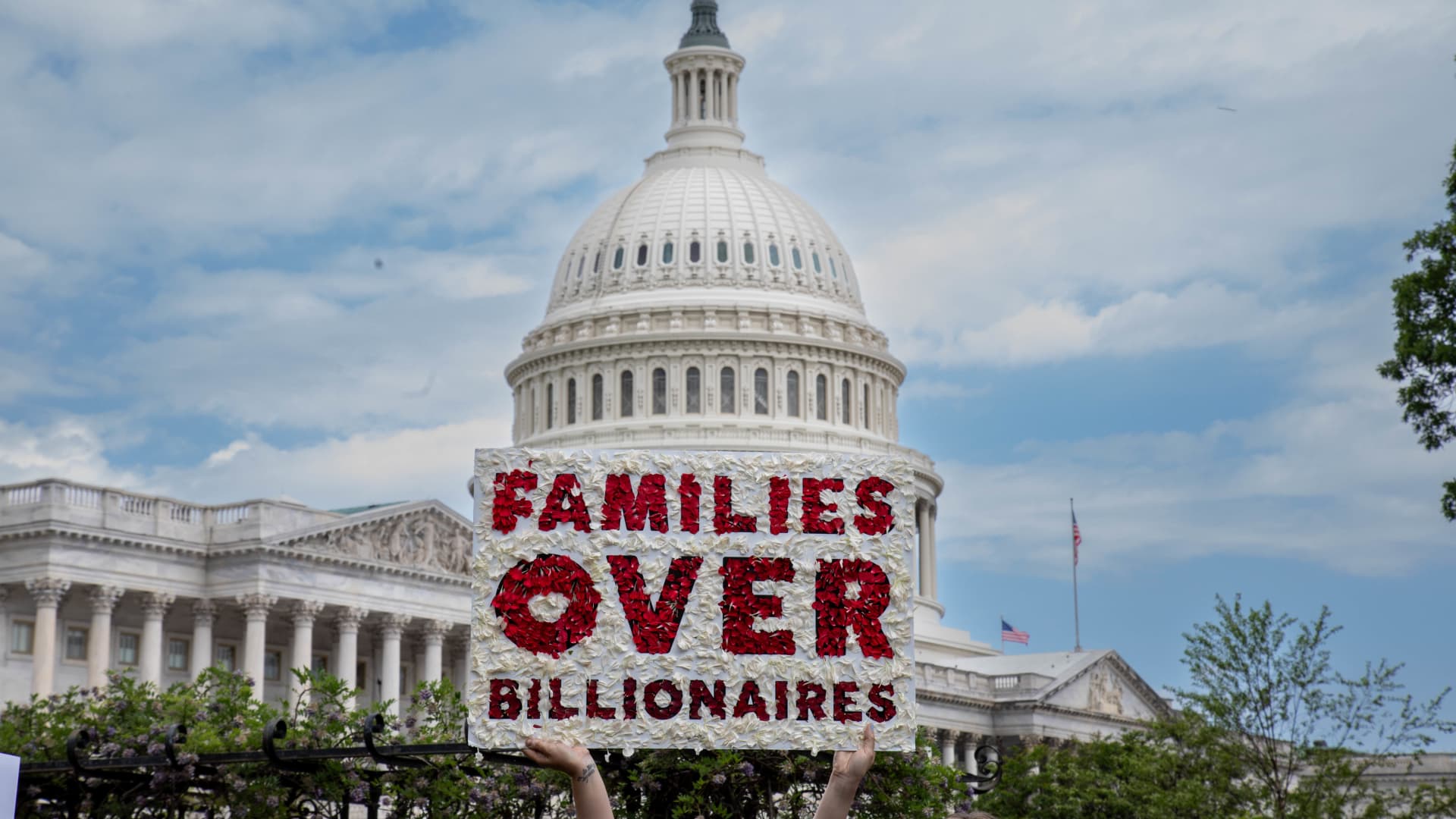Osaka, Japan.
Jiale Tan | Moment | Getty Images
The new year has many travelers thinking ahead to 2025 vacation plans — and how much those trips may cost.
About half — 51% — of Americans say flight cost will determine their destination choices this year, according to Skyscanner. And 50% said hotel costs are a factor.
The average person has paid more for travel of late: Airline fares were up 8% in December, on an annual basis, and hotel costs had increased 2%, according to the consumer price index.
But travelers can still find deals, experts said.
They may find the best bargains by going abroad in 2025 — especially by visiting the Asia-Pacific region, experts said.
Airfare for international trips is down 4% this year compared with 2024, according to a recent Kayak analysis. About two-thirds of all flight searches for travel in 2025 are for international flights, it found.
Conversely, airfare for U.S. flights in 2025 is up 3% from last year, Kayak said.
Kayak’s analysis examined its internal search data between May 1 and Oct. 31, 2024, for travel in 2025.
Domestic fares in January are about 12% higher relative to the same month last year, according to Hopper, a travel site. They’re expected to stay above 2023 and 2024 levels until at least halfway through the year.
“Overall, it’s going to be a more expensive year than last year” for domestic travel, said Hayley Berg, lead economist at Hopper.
Largely, that’s because flying domestically in 2024 was cheap, as airlines “flooded the market” with seat inventory, Berg said.
More from Personal Finance:
Why Americans traveling to Europe may find bargains in 2025
Demand for international trips drives ‘travel momentum’
Here are 4 big ways to save on your next trip
“Prices this year are very similar to prices in 2023,” she said. “And 2024 really threw us for a loop in how low they got.”
Meanwhile, long-haul fares to Europe, South America, Oceania and Asia are flat or lower to start the year, Berg said.
Of course, a trip abroad is likely to be more costly on a dollar basis than one closer to home: The average round-trip U.S. flight cost about $300 in January, versus $685 to South America, $750 to Europe and about $1,100 to Asia, according to Hopper.
Average hotel rates abroad and in the U.S. are similar to 2024, according to Kayak.
Rental cars are 8% and 4% more expensive for international and domestic rates, respectively, it said.
Why Asia is ‘the best bargain’
Sapporo, Japan.
Sergio Formoso | Moment | Getty Images
Price largely depends on when people book and plan to travel.
For example, travel to Asia is the cheapest it’s been in three years, Kayak found. Average airfare to the continent is down 7% year over year, it said.
“Asia continues year over year to look like the best bargain,” Berg said.
Even some places that are red-hot with interest from travelers — including Sapporo and Osaka, Japan — are shaping up to be cheaper.
Search interest in Sapporo, for example, is up 31% year over year, but average airfare is down 19%, to $1,230, according to Kayak. Fares to Osaka, Japan’s “gastronomic capital,” are down 14% to $1,233, it said.
Tokyo is the most-searched international destination of 2025, it said.
Hotel room rates advertised in Asia-Pacific are expected to be 11% lower in the first half of 2025 relative to the same period of 2024, according to Lighthouse, a hospitality market research firm.
A ‘new market equilibrium’ for airfare
Daniel Garrido | Moment | Getty Images
Airfare to Asia-Pacific destinations is pulling back from high levels following the Covid-19 pandemic, Berg said.
Asian nations were generally slower to reopen their borders and drop Covid restrictions relative to other countries. Now, airlines are adding flight routes, boosting supply and lowering seat prices, Berg said.
“We have to see what the new market equilibrium will be,” Berg said.
Jet fuel prices — a major input cost for airlines — were down 11% in January from last year, Hopper said.
Like Asia, travel to the Caribbean is also the cheapest in three years, with airfare down 17% compared with 2024, according to Kayak.
Hotel deals more likely for off-season travel
Globally, hotel prices will vary widely, and established locales such as Paris, London, and parts of Asia such as Tokyo and Bangkok, Thailand, are “expected to reflect strong demand,” Melanie Fish, vice president of global public relations for Expedia Group, wrote in an e-mail.
“Meanwhile, emerging destinations or less-crowded spots may offer lower rates,” she said.
Hotel deals are “more likely” in off-peak seasons than peak periods such as spring break, summer or the holidays, particularly in areas with consistently high demand, Fish said.
Another factor helping travelers’ wallets abroad: the strength of the U.S. dollar versus many international currencies, she said.
Argentina, Japan, Mexico, Brazil and Hungary are among the top destinations where the dollar can stretch furthest, “making activities, dining and accommodations more budget-friendly,” Fish said.
Tips for saving money on travel in 2025
Colton Stiffler | Moment | Getty Images
There are some ways consumers can reliably save money on travel expenses.
1. Flexibility is ‘key’
“Flexibility is really the key to saving on travel,” Berg said.
This applies to many aspects of travel, including destination, the time of year you visit that locale and the days of the week you travel, experts said.
For example, it’s generally cheaper to fly midweek. Hotel stays have a similar dynamic. The bottom line: Weekends are probably pricier.
“Adjusting your [hotel] stay to midweek instead of weekends or traveling during the off-season can lead to substantial savings,” Sally French, a travel expert at NerdWallet, wrote in an e-mail.
Seasonality has a “huge effect” on flight costs, Fish said.
A bucket-list trip to Europe in August will be expensive and crowded, but traveling in September or October can save you 30%, Berg said. Visit a city instead of taking a beach trip during spring break, or wait until fall to head to Europe, Fish recommended.
Experts also recommend travel “dupes,” a less-trodden but similar alternative to a popular destination.
Also be open to alternative airports, French said.
“Many cities are served by multiple airports,” she said. “Rather than fly into, say San Francisco International Airport, consider flying into Oakland International Airport, which is a similar distance to most parts of the city for a trip to San Francisco.”
2. Book at the right time
Domestic flights are often cheaper when bought about one to three months ahead, French said. International travelers should book two to eight months in advance.
Last-minute airfare deals are rare, so book in advance for maximum availability and generally lower prices, she said.
The logic isn’t always the same for hotels: Travelers can sometimes find last-minute deals on room rates in certain markets, Fish said.
3. Book directly with your hotel
Many hotels offer price-match guarantees or loyalty member discounts that aren’t available on third-party booking sites, French said.
“Third-party booking sites can be great to browse and compare hotels against each other on that site, but once you’ve narrowed down the hotel you want to book, check its price elsewhere (including the direct hotel website, or even bank travel portals),” she wrote in an e-mail.
4. Set flight alerts
Use tools such as Google Flights or Hopper to monitor prices and snag deals when fares drop, French said.


 Economics7 days ago
Economics7 days ago
 Economics7 days ago
Economics7 days ago
 Finance7 days ago
Finance7 days ago
 Economics5 days ago
Economics5 days ago
 Economics7 days ago
Economics7 days ago
 Blog Post6 days ago
Blog Post6 days ago
 Personal Finance5 days ago
Personal Finance5 days ago
 Personal Finance6 days ago
Personal Finance6 days ago













